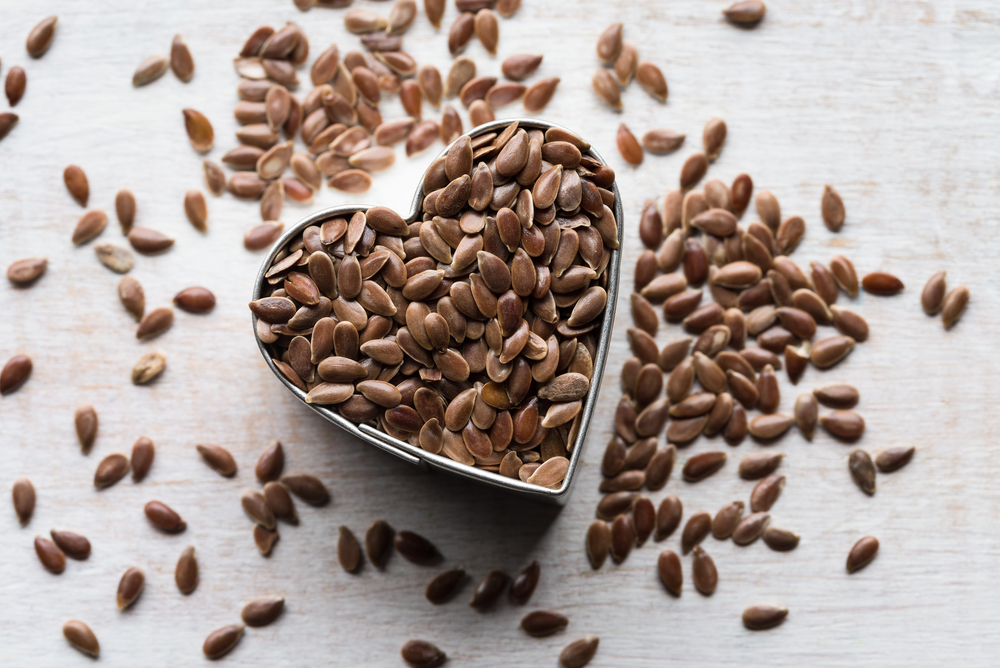
What Are Flax Seeds?
Flax seeds (also called linseeds) are a high quality fatty acid. The seeds are a rich source of micronutrients, dietary fibre, manganese, vitamin B1, and omega-3. The seeds come from flax, one of the the oldest fibre crops in the world – known to have been cultivated in ancient Egypt and China. Flax seeds are not only a source of healthy fat, antioxidants and fibre – modern research has found evidence to suggest that flax seed can also help lower the risk of diabetes, heart disease and potentially even some cancers.
What are the benefits of Flax Seeds?
Nutrient Dense
 Flax seed is packed with a range of nutrients. The fat from Flax Seed is mostly Omega 3 which can help in reducing cholesterol levels. Flax seed also contains lignans, a class of phytoestogens which are thought to have antioxidant properties. Flax seed is also an excellent source of vitamin E and contain a rich source of minerals like zinc, magnesium, calcium and iron. With it’s nutrient dense nature, flax seed is widely used by strength athletes and those wanting to increase muscle mass as it is a great source of healthy fats and is highly calorific. It is therefore the ideal bulking agent to add to any protein shake.
Flax seed is packed with a range of nutrients. The fat from Flax Seed is mostly Omega 3 which can help in reducing cholesterol levels. Flax seed also contains lignans, a class of phytoestogens which are thought to have antioxidant properties. Flax seed is also an excellent source of vitamin E and contain a rich source of minerals like zinc, magnesium, calcium and iron. With it’s nutrient dense nature, flax seed is widely used by strength athletes and those wanting to increase muscle mass as it is a great source of healthy fats and is highly calorific. It is therefore the ideal bulking agent to add to any protein shake.
Reduce Risk of Heart Disease
Omega-3s are thought to support the cardiovascular system through several different mechanisms, including anti-inflammatory action and normalizing the heartbeat. New research also suggests significant blood pressure-lowering effects of flax seed. Diets rich in flax seed and omega-3s may also help prevent hardening of the arteries and keep plaque from being deposited in the arteries partly by keeping white blood cells from sticking to the blood vessels’ inner linings. Because omega-3s may also play a role in maintaining the heart’s natural rhythm, they may be useful in treating arrhythmia (irregular heartbeat). Eating flax seed daily may also help your cholesterol levels, thanks again to the rich omega-3 content.
Combat Cancer
Some research has even demonstrated that flax seeds may have a mild proventitive effect against certain cancers. At least two of the components in flax seed seem to contribute. In animal studies, the plant omega-3 fatty acid found in flaxseed, called ALA, inhibited tumor incidence and growth. The lignans in flax seed may also provide some protection against cancers by blocking enzymes that are involved in hormone metabolism and interfering with the growth and spread of tumor cells. Some of the other components in flax seed also have antioxidant properties, which may indirectly contribute to protection against cancer and heart disease.
Inflamation
Ways to add Flax Seeds to Your Diet
- Try adding a tablespoon of flax seeds to your porridge or pancake mix to add extra nutrients.
- Sprinkle a spoon full over yoghurt.
- Add to Flax Seed powder to your protein shakes or smoothies.
- Mix a spoonful with mayo and use on sandwiches.
- Add to flour to combine in baked goods.






No Comments yet!